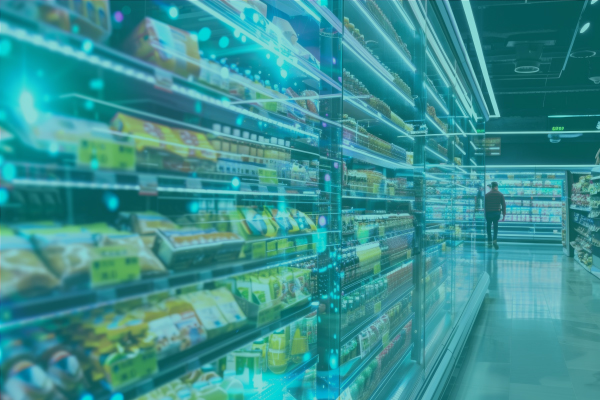How will Technology Impact the FMCG Sector in 2024?
19-Sep-24

The role of technology in FMCG is significant in making the product life cycle of these goods simpler and more efficient. The cycle needs to be like a well-oiled machine in the world of Fast Moving Consumer Goods. After all, many stakeholders like suppliers, manufacturers, sellers, distributors, vendors, retailers, transporters, etc. rely on its smooth and efficient functioning.
Accurate and timely communication, efficient logistics, and consistent tracking will ensure that the product reaches the consumer's hands in time. Needless to say, this activity is tedious if done manually.
There are numerous tech solutions available in the market. However, here are two such solutions that need to be implemented by business.
1. Comprehensive Compliance Checks While Onboarding:
The transactions between the many stakeholders of the FMCG industry are endless. Every supplier, distributor and transporter must meet the terms and conditions set by the business owner. FMCG compliance is necessary for transparency, traceability, and accountability in a supply chain. Thus, business owners conduct exhaustive compliance checks for all the onboarded stakeholders.
This can be achieved through blockchain technology that offers a shared and secure record for transactions. By using blockchain, FMCG companies can effectively monitor and ensure that suppliers and distributors adhere to the agreed-upon terms and timelines. This implementation provides a transparent and real-time tracking system that significantly enhances compliance management in the supply chain.
AI-driven tools can also help reduce errors and improve efficiency while onboarding a new third party. These tools can automate the onboarding process by analysing vast amounts of data and checklists, such as AML, PEP and more, for compliance checks, thus reducing manual effort.
For conducting comprehensive compliance checks while onboarding stakeholders in the FMCG industry, here are key pointers for ensuring due diligence:
2. Supply Chain Technologies:
The supply chain process is the lifeline of the FMCG industry. Maintaining a consistent inventory stream that is aligned with consumer needs is a daunting task. Gone are the days when inventory management was done on paper.
Today, the supply chain is effortlessly managed by cloud-based solutions, where data is available at the click of a button. Cloud computing is used to streamline supply chain management, making it more agile and responsive to market changes. This, in turn, contributes to better operational efficiency.
Third-Party Risk and Compliance tools should be used to avoid any disruptions in the chain. These tools help select better suppliers, protect business continuity, and help create better supplier relationships. These tools also help in reducing risks to avoid disruptions in supply chain management.
Are these AI-based technological tools really important for FMCG businesses? In a word, yes. These tools can help understand market trends, boost revenue, increase ROI, help products reach customers faster, showcase brand credibility, etc.
As technological development makes the FMCG processes simpler and more efficient, it can also be used to ensure seamless operation between stakeholders and consumers.
Innovative technologies such as blockchain and cloud computing can help in inventory management and transparency in the supply chain process. Furthermore, business intelligence and analytics help in understanding the brand's current performance and forecasting consumer demands.
Thus, new technologies can not only help meet the dynamic industry needs but also improve business operations and strategies. Staying updated with all these technological developments will help positively impact the FMCG sector in 2024.
Dun & Bradstreet, the leading global provider of B2B data, insights and AI-driven platforms, helps organizations around the world grow and thrive. Dun & Bradstreet’s Data Cloud, which comprises of 455M+ records, fuels solutions and delivers insights that empower customers to grow revenue, increase margins, build stronger relationships, and help stay compliant – even in changing times.

Activate data and analytics to control supply chain risk and avoid the consequences of disruption. Learn more about our supply chain solutions.

Get your business noticed in the global marketplace with the global seal of credibility

Identify Your High Value & High Risk Customers to improve profitablility.